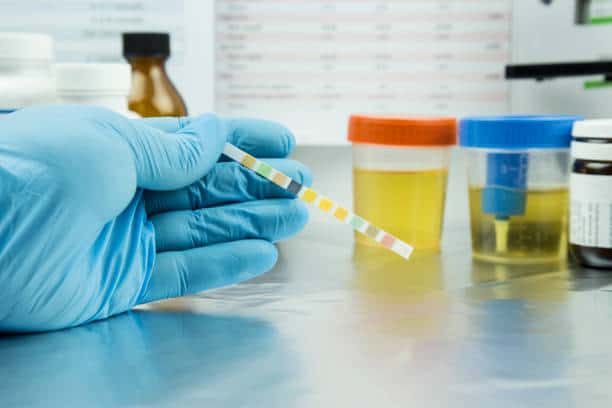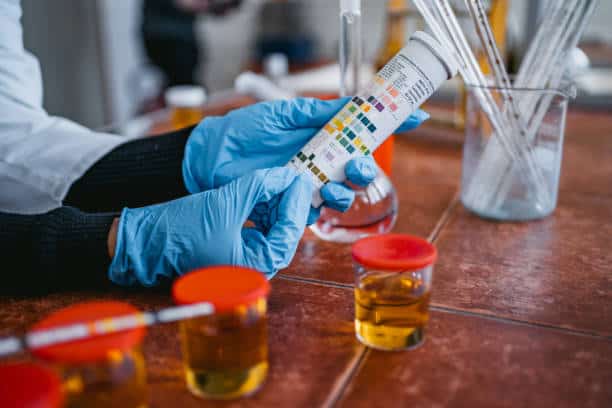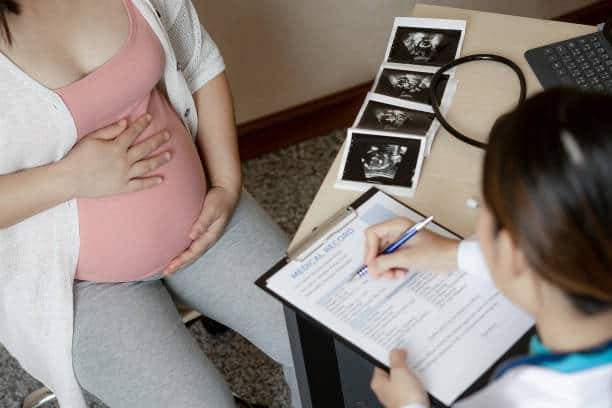Drug test during pregnancy is a topic of concern for many expectant mothers. Some may wonder if their OB-GYN will drug test them during pregnancy, and if so, why?
The answer is not a simple one, as different healthcare providers may have varying policies on drug testing during pregnancy.
Understanding Drug Testing During Pregnancy is important to help expectant mothers make informed decisions about their healthcare. Some healthcare providers may require drug testing during pregnancy as a routine part of prenatal care.
This is because drug use during pregnancy can have serious implications for both the mother and the fetus.
Implications for the Mother can include increased risk of complications during pregnancy, such as preterm labor, premature rupture of membranes, and placental abruption. Additionally, drug use during pregnancy can lead to addiction, which can have long-term consequences for the mother’s health and well-being.

Key Takeaways
- Drug testing during pregnancy may be required by some healthcare providers as part of routine prenatal care.
- Drug use during pregnancy can have serious implications for both the mother and the fetus.
- Legal and ethical considerations must be taken into account when implementing drug testing policies during pregnancy.
1. Understanding Drug Testing During Pregnancy

Drug testing during pregnancy is a common practice that is performed to ensure the health and safety of both the mother and the baby. The testing is usually done during prenatal care visits and involves screening the mother’s urine or maternal blood for the presence of drugs or other substances.
The purpose of drug testing is to identify any substance abuse issues that may be present in the mother. Substance abuse during pregnancy can lead to a range of negative outcomes for both the mother and the baby, including low birth weight, premature birth, developmental delays, and even death.
It is important to note that drug testing during pregnancy requires the mother’s consent. The healthcare provider should explain the purpose of the test and obtain the mother’s consent before proceeding.
There are several validated screening tools, such as questionnaires, that can be used to identify women who may be at risk for substance abuse. Additionally, universal screening is recommended during prenatal care visits to ensure that all women are screened for substance abuse.
In addition to drug testing, prenatal care visits may also include screening tests for other conditions, such as gestational diabetes, rubella, hepatitis, and blood type. The first-trimester screening tests typically include a blood test and an ultrasound to assess the risk of chromosomal abnormalities.
The second-trimester screening tests may include an ultrasound, a blood test, or both to assess the risk of neural tube defects and other conditions.
Overall, drug testing during pregnancy is an important part of prenatal care and can help identify substance abuse issues early on. By identifying these issues, healthcare providers can work with the mother to develop a treatment plan that can help ensure the health and safety of both the mother and the baby.
2. Implications for the Mother

Drug testing during pregnancy can have significant implications for the mother. If a positive drug screen is obtained, it can lead to bias and assumptions about the mother’s character and ability to care for her child.
This can result in negative consequences such as loss of custody, arrest, and jail time.
Additionally, false-positive results can occur, leading to unnecessary stress and consequences for the mother. It is important for physicians to use confirmatory testing to avoid false accusations of substance use.
If a mother is struggling with addiction or substance use, it is important for her to be treated with compassion and provided with appropriate treatment options. The American College of Obstetricians and Gynecologists and the American Society of Addiction Medicine recommend that pregnant women with substance use disorders be treated with evidence-based practices, including medication-assisted treatment.
It is also important for physicians to obtain informed consent from pregnant women before drug testing, as well as to provide education about the potential consequences of substance use during pregnancy. This can help to avoid misunderstandings and negative outcomes for both the mother and child.
In addition to illicit drug use, alcohol and nicotine use during pregnancy can also have negative consequences for the mother and child. It is important for physicians to screen for these substances and provide education and treatment options as necessary.
Overall, drug testing during pregnancy can have significant consequences for the mother, and it is important for physicians to approach this issue with compassion, knowledge, and neutrality.
3. Implications for the Fetus and Newborn

Drug testing during pregnancy can have significant implications for the fetus and newborn. Prenatal drug exposure can result in a range of complications, including miscarriage, placental abruption, fetal abnormalities, and neonatal withdrawal symptoms.
Some drugs, such as opioids, can cross the placenta and enter the fetal bloodstream, potentially causing birth defects or other adverse outcomes. Additionally, drug use during pregnancy can increase the risk of neonatal and maternal medical outcomes, such as preterm labor and meconium-stained amniotic fluid.
HIV-positive pregnant women may also be subject to drug testing, as certain antiretroviral medications can have harmful effects on the fetus. However, false-negative results are a concern, as some drugs may not be detectable in maternal urine or blood.
Genetic disorders can also play a role in the implications of drug testing during pregnancy. For example, some genetic variations can affect drug metabolism, potentially leading to adverse effects for the fetus or newborn.
Overall, drug testing during pregnancy should be approached with caution, as the potential risks to the fetus and newborn must be weighed against the benefits of identifying and treating maternal drug use.
4. Legal and Ethical Considerations

When it comes to drug testing during pregnancy, there are a number of legal and ethical considerations that must be taken into account. These considerations include issues related to consent, custody, arrest, illegal drug use, bias, and more.
Below, we will explore some of the key legal and ethical issues that arise when it comes to drug testing during pregnancy.
One of the most important considerations when it comes to drug testing during pregnancy is informed consent. Pregnant women have the right to be fully informed about any medical procedures that are being performed on them, and they must give their informed consent before any testing can take place.
This means that healthcare providers must explain the risks and benefits of drug testing during pregnancy, as well as any potential consequences of a positive test result.
Another important consideration is the potential for child endangerment. If a pregnant woman tests positive for illegal drugs, there is a risk that her child may be born with health problems or developmental delays.
In some cases, child protective services may become involved, and the woman may even face jail time if her drug use is deemed to be endangering her child.
It is also important to consider issues related to bias and discrimination. Pregnant women who use drugs may be stigmatized and judged, and healthcare providers must be careful not to let their personal biases influence their treatment of these women.
The American College of Obstetricians and Gynecologists and the American Society of Addiction Medicine both recommend that healthcare providers approach drug testing during pregnancy with a non-judgmental and supportive attitude.
Finally, there are important ethical considerations related to public health monitoring, policy development, and resource allocation. Drug testing during pregnancy can help identify women who need support and treatment, but it can also be expensive and resource-intensive.
Healthcare providers and policymakers must weigh the benefits and costs of drug testing during pregnancy and make decisions that are in the best interest of both individual patients and the broader public health.
5. Diagnostic and Treatment Approaches

During prenatal care, obstetricians/gynecologists (OBGYNs) may order drug tests for pregnant women to ensure the health of both the mother and the developing fetus. However, the American College of Obstetricians and Gynecologists (ACOG) does not recommend universal drug testing for all pregnant women.
Instead, testing is usually done based on clinical suspicion or known risk factors.
If a drug test is positive, the OBGYN will discuss treatment options with the patient. Treatment may include referral to a substance abuse program or counseling.
The OBGYN may also recommend additional prenatal appointments to monitor the pregnancy and the health of the fetus.
In addition to drug testing, OBGYNs may also use various diagnostic tests to screen for genetic conditions or other abnormalities. These tests may include ultrasound, amniocentesis, chorionic villus sampling, and nuchal translucency screening.
However, it is important to note that these tests can sometimes produce false-positive results, which can cause unnecessary stress and anxiety for the patient.
Overall, OBGYNs use a combination of diagnostic and treatment approaches to ensure the health of both the mother and the developing fetus during pregnancy. It is important for pregnant women to attend all prenatal appointments and discuss any concerns or questions with their OBGYN.
Related post: Should Pregnancy Test Lines Get Darker
Frequently Asked Questions
What happens if you test positive for drugs during pregnancy?
If a pregnant woman tests positive for drugs during pregnancy, the healthcare provider may report it to child protective services. This could lead to an investigation and possible removal of the newborn from the mother’s care. In some cases, the mother may be referred to substance abuse treatment.
Does Medicaid drug test during pregnancy?
Medicaid does not require drug testing during pregnancy. However, some healthcare providers may choose to drug test their patients as part of their standard prenatal care.
Can doctors drug test without consent while pregnant?
Doctors cannot drug test without consent while pregnant. However, if there is suspicion of drug use, they may ask for consent to perform a drug test.
Will my doctor drug test me while pregnant?
It depends on the healthcare provider’s policies. Some doctors routinely drug test their pregnant patients, while others only test if there is a suspicion of drug use.
Will a gynecologist test for drugs?
Gynecologists may test for drugs as part of their standard prenatal care. However, it ultimately depends on the healthcare provider’s policies.
What does Obgyn test urine for during pregnancy?
OBGYNs typically test urine during pregnancy for various purposes, including checking for protein, glucose, and signs of infection. They may also test for drugs if there is a suspicion of drug use.

Iesha is a loving mother of 2 beautiful children. She’s an active parent who enjoys indoor and outdoor adventures with her family. Her mission is to share practical and realistic parenting advice to help the parenting community becoming stronger.
